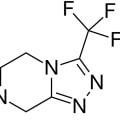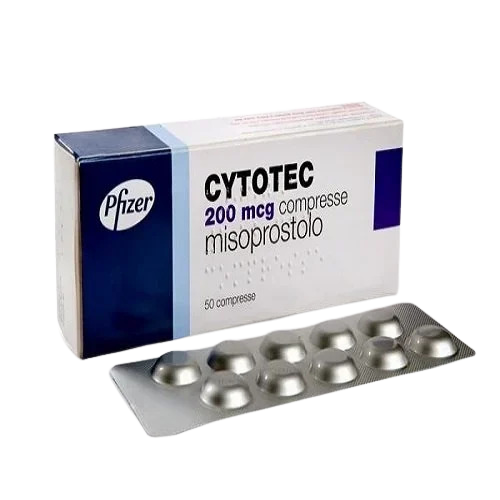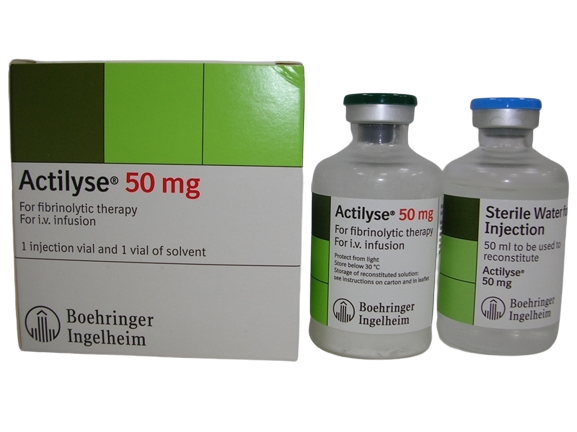Januvia 100mg 28’ct tablet
Januvia (sitagliptin) is a prescription medication used to improve glycemic control in adults with type 2 diabetes mellitus. The recommended dose of Januvia is 100 mg once daily, which can be taken with or without food.For patients with moderate renal impairment (estimated glomerular filtration rate [eGFR] 30 to less than 45 mL/min/1.73 m2), the recommended dose is 50 mg once daily. For patients with severe renal impairment (eGFR less than 30 mL/min/1.73 m2) or end-stage renal disease on dialysis, the recommended dose is 25 mg once daily.
Mechanism of Action
Januvia is a dipeptidyl peptidase-4 (DPP-4) inhibitor. It works by blocking the DPP-4 enzyme, which normally breaks down the incretin hormones GLP-1 and GIP. By inhibiting DPP-4, Januvia increases and prolongs the action of these hormones, which stimulate insulin secretion and suppress glucagon release in a glucose-dependent manner.

Description
Januvia (sitagliptin) is a prescription medication used to improve glycemic control in adults with type 2 diabetes mellitus. The recommended dose of Januvia is 100 mg once daily, which can be taken with or without food.For patients with moderate renal impairment (estimated glomerular filtration rate [eGFR] 30 to less than 45 mL/min/1.73 m2), the recommended dose is 50 mg once daily. For patients with severe renal impairment (eGFR less than 30 mL/min/1.73 m2) or end-stage renal disease on dialysis, the recommended dose is 25 mg once daily.
Mechanism of Action
Januvia is a dipeptidyl peptidase-4 (DPP-4) inhibitor. It works by blocking the DPP-4 enzyme, which normally breaks down the incretin hormones GLP-1 and GIP. By inhibiting DPP-4, Januvia increases and prolongs the action of these hormones, which stimulate insulin secretion and suppress glucagon release in a glucose-dependent manner.
Cardiovascular Outcomes Trial
The TECOS (Trial Evaluating Cardiovascular Outcomes with Sitagliptin) study demonstrated that Januvia does not increase the risk of major adverse cardiovascular events (MACE) in patients with type 2 diabetes and established cardiovascular disease. This was an important finding that helped establish the cardiovascular safety of Januvia.
Renal Benefits
In addition to its glycemic effects, Januvia has been shown to have potential renal benefits. The CARMELINA trial found that Januvia did not increase the risk of kidney disease progression or renal death compared to placebo in patients with type 2 diabetes and high cardiovascular and renal risk.
Pregnancy Considerations
Januvia is classified as Pregnancy Category B by the FDA. Animal studies have not shown a risk to the fetus, but there are no adequate and well-controlled studies in pregnant women. Januvia should only be used during pregnancy if clearly needed.
Unique Tablet Appearance
The Januvia 100mg tablet has a unique beige color and round shape. The tablet is film-coated and debossed with “277” on one side and plain on the other. This distinctive appearance helps differentiate Januvia from other diabetes medications.
Key Benefits of Januvia 100mg
- Helps lower blood sugar (A1C) levels in adults with type 2 diabetes when used along with diet and exercise
- Does not typically cause weight gain
- Does not commonly cause low blood sugar (hypoglycemia) when used alone
- Shown to have cardiovascular safety in patients with type 2 diabetes and established cardiovascular disease
- May have potential renal benefits by not increasing the risk of kidney disease progression
Key Ingredients in Januvia 100mg
The active ingredient in Januvia 100mg tablets is sitagliptin. Sitagliptin is a dipeptidyl peptidase-4 (DPP-4) inhibitor that works by:
- Blocking the DPP-4 enzyme, which normally inactivates the incretin hormones GLP-1 and GIP
- Increasing and prolonging the action of these incretin hormones, which stimulate insulin secretion and suppress glucagon release in a glucose-dependent manner
By modulating incretin hormone levels, sitagliptin helps improve glycemic control in adults with type 2 diabetes.The Januvia 100mg tablet also contains the following inactive ingredients: microcrystalline cellulose, anhydrous dibasic calcium phosphate, croscarmellose sodium, magnesium stearate, and sodium stearyl fumarate. The tablet coating contains polyvinyl alcohol, polyethylene glycol, talc, titanium dioxide, and iron oxides .

Here is a summary of the key mechanism of action for Januvia (sitagliptin):
Mechanism of Action
Januvia is a dipeptidyl peptidase-4 (DPP-4) inhibitor. It works by:
- Blocking the DPP-4 enzyme, which normally breaks down the incretin hormones GLP-1 and GIP
- Increasing and prolonging the action of these incretin hormones
- Incretin hormones stimulate insulin secretion and suppress glucagon release in a glucose-dependent manner
By modulating incretin hormone levels, Januvia helps improve glycemic control in adults with type 2 diabetes. The increased insulin and decreased glucagon work together to lower blood sugar levels.This DPP-4 inhibition mechanism of action is unique compared to other diabetes medications like metformin, which primarily works by reducing hepatic glucose production. The incretin-based mechanism of Januvia provides an additional way to target the underlying defects in type 2 diabetes.
Dosage
- The recommended dosage of Januvia is 100 mg once daily, taken with or without food
- For patients with moderate renal impairment (eGFR 30 to less than 45 mL/min/1.73 m2), the recommended dose is 50 mg once daily
- For patients with severe renal impairment (eGFR less than 30 mL/min/1.73 m2) or end-stage renal disease, the recommended dose is 25 mg once daily
Storage
- Januvia should be stored at room temperature between 68°F to 77°F (20°C to 25°C)
- It can be exposed to temperatures between 59°F to 86°F (15°C to 30°C) for shorter periods, such as when transporting
- Januvia should be kept in a tightly closed container in a cool, dry place
Reviews
Based on the search results, there are no specific patient reviews or ratings provided for Januvia 100mg tablets. The information focuses more on the clinical details, dosage, and safety profile of the medication. Patient experiences and satisfaction with Januvia would need to be researched further beyond these search results.








Reviews
There are no reviews yet.